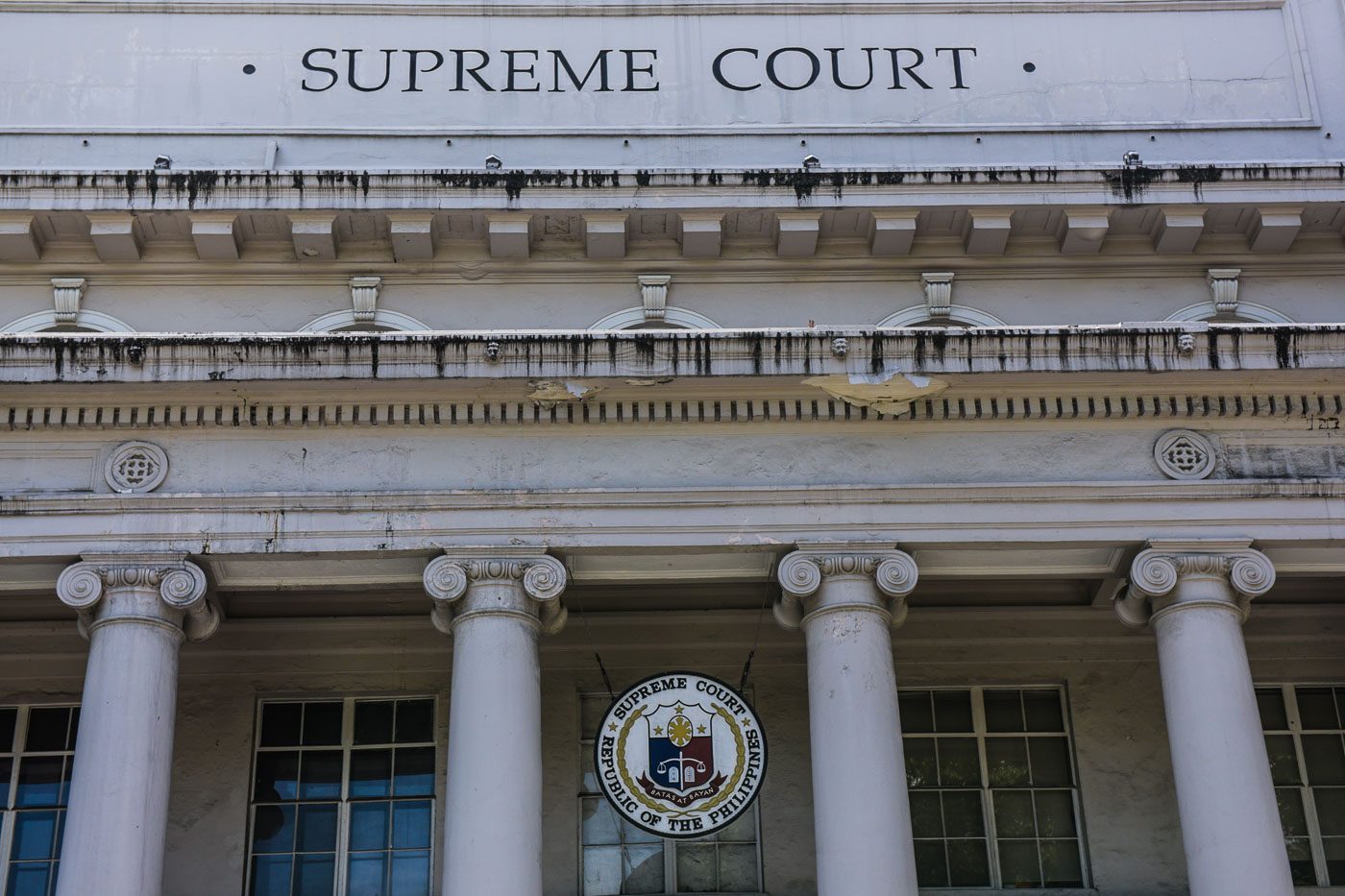SUMMARY
This is AI generated summarization, which may have errors. For context, always refer to the full article.

MANILA, Philippines – Bad news for Filipino advocates as the Supreme Court has lifted a 2015 Temporary Restraining Order (TRO), and upheld as valid the higher education memorandum excluding Filipino, Panitikan, and Constitution as required subjects in college.
“The Temporary Restraining Order dated April 21, 2015 issued in G.R. No. 217451 is hereby lifted,” says the unanimous en banc decision promulgated October 9.
In the 94-page ponencia written by Associate Justice Benjamin Caguioa, the en banc declared K-12 constitutional and lifted the TRO against the Commission on Higher Education’s (CHED’s) Memorandum Order No. 20 (CMO No. 20) which excluded Filipino and Pantikan as core courses in college.
Caguioa had unanimous votes; Associate Justices Lucas Bersamin, Alexander Gesmundo, and Jose Reyes Jr were on leave and did not cast a vote.
“Petitioners assert that CMO No. 20 is violative of the Constitution because the study of Filipino, Panitikan, and the Philippine Constitution are not included as core subjects. The Court disagrees,” said the en banc.
Non-self-executing law
Filipino advocates argued that excluding Filipino from the General Education Curriculum (GEC) in college violated Section 6, Article XIV of the Constitution. The provision states that “the Government shall take steps to initiate and sustain the use of Filipino as a medium of official communication and as language of instruction in the educational system.”
The SC essentially said that the provision was not absolutely instructive.
In legal principles, there are what you call non-self-executing provisions, meaning the parts of the Constitution that cannot be enforceable by itself; instead they need separate legislations to be in effect.
“Thus, the Court reiterates that these constitutional provisions are only policies that may be ‘used by the judiciary as aids or as guides in the exercise of its power of judicial review, and by the legislature in its enactment of laws.’ The Court reiterates that they do not embody judicially enforceable constitutional rights,” said the en banc.
Non-duplication
The High Court also upheld as valid the exclusion from GEC of other subjects like Panitikan and Constitution.
“To be sure, the changes in the GE curriculum were implemented to ensure that there would be no duplication of subjects in Grade 1 to 10, senior high school and college. Thus, the allegation of petitioners that CMO No. 20 “removed” the study of Filipino, Panitikan, and the Constitution in the GE curriculum is incorrect,” said the Court.
When the SC issued the TRO in 2015, it only stopped the implementation of he CHED memorandum at the time “without giving due course to the petition.”
Three years later, the en banc decided that the CHED’s decision to exclude the said subjects from the GEC was consistent with its authority under Republic Act No. 7722 or the Higher Education Act.
“The provision further provides that this authority shall not be construed as limiting the academic freedom of universities and colleges. Therefore, HEis are given the freedom to require additional Filipino or Panitikan courses to these minimum requirements if they wish to,” said the SC.
On whether the memorandum will result in the teachers losing jobs, the SC said, “Teachers and professors were given the opportunity to participate in the various consultations and decision-making processes affecting their rights as workers.”
K-12 oppositors claimed there was no comprehensive consultation with stakeholders before the law was passed.
The SC also advised the people to just reflect their opposition in their choices of who elect as their representatives.
“And even assuming that no consultations had been made prior to the adoption of the K to 12, it has been held that the ‘penalty for failure on the part of the government to consult could only be reflected in the ballot box and would not nullify government action,’” said the SC. – Rappler.com
Add a comment
How does this make you feel?
There are no comments yet. Add your comment to start the conversation.